How to Make It: Will a Mindfulness Practice Benefit Your Legal Practice?
"Tibetan meditative tradition, there's a piece of advice they're very fond of giving. They say, 'Short moments, many times.' It's a valid way to practice, and it's a viable way for a busy lawyer who has their nose in their computer to practice mindfulness."
April 26, 2022 at 09:57 AM
4 minute read
How I Made ItHannah Walker contributed an article on Law.com titled "Are Well-Being Efforts for Young Lawyers Pulling the Wool Over Their Eyes?" Walker quoted several senior lawyers who seemed to equate wellness programs, such as mindfulness classes, with fooling young lawyers into thinking the profession is easy. One partner asked, "Are we trying to convert the legal profession from hard work by wrapping them in cotton wool?"
At the same time, more and more law firms are implementing wellness initiatives, including mindfulness and meditation. Mintz, Levin, Cohn, Ferris, Glovsky and Popeo has wellness offerings that include meditation and mindfulness classes and fitness classes.
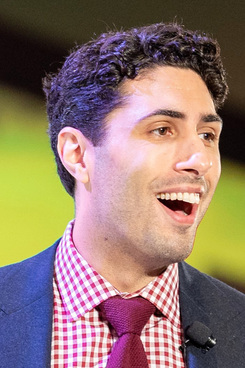 Jon Krop, the founder of Mindfulness for Lawyers. Courtesy photo
Jon Krop, the founder of Mindfulness for Lawyers. Courtesy photo We met with Jon Krop, Harvard-trained lawyer and founder of Mindfulness for Lawyers, to ask questions about how a mindfulness practice can help lawyers (and staff). Note: Responses have been edited for style.
Q: What do you say to someone who says, "I can't meditate," when it's probably not true?
JK: It's almost certainly not true. It is a very rare person, if such a person exists, who can't meditate. One big reason is the amount of time they have, and the feeling of not having enough and of being so busy. Another is related to a sort of perfectionism that lawyers often have. Those two things often interact and lead to this feeling of "Well, I can't find a half-hour to meditate, so I can't do it." Consistency is more important than duration. I would rather you meditate for two minutes daily than two hours two or three days a week.
Q: Are there any measurable outcomes from a mindfulness practice?
JK: Can I tell you on a scale of 1 to 10? No. They're not quantifiable, but they are perceptible. Results vary from person to person, but I think that if you meditate reliably, what often arises is, if we're speaking subjectively, a certain calm and peacefulness in the mind, a certain clarity of mind, and a boost in focus.
Let's say you're in front of a judge arguing a motion. Opposing counsel says something ridiculous, and maybe in the past, you might have said something back (you wouldn't have been able to help yourself), and you get the rebuke from the judge. It isn't fair, but it happens. You can't afford to do that for your client. The ability to work skillfully with our own emotions to respond rather than react is so powerful.
Q: Do you find it easier to work with younger attorneys than with established, old-school partners or firm leaders?
JK: In general, I do notice that younger people are more receptive. Meditation and mindfulness are becoming mainstream, but more among the younger sectors of contemporary society and culture, because it's coming through apps and things that millennials and Gen Z people consume more often, so I find that there is greater receptivity. And once in a while, I will encounter a partner at a law firm who initially comes in with the attitude of "I worked day and night and didn't worry about this mindfulness stuff, and I turned out OK," but that is rare. Even the more senior people have been receptive.
Q: How can you be in the moment when you're trying to think several moves ahead? Focusing deeply on one specific task at a time doesn't sound like the way most law is practiced.
JK: It is hard to be deeply mindful when you're engaging in cognitive tasks, because mindfulness involves experiencing without being in the narrative or analysis mode. So we can't be moment-to-moment mindful, but we can periodically take little breaks, stop your work, and do a little bit of mindfulness. Practice tuning into your breathing for a second. Feel your feet on the floor. Pull yourself out of your head and into the present moment, through your senses and engage that mindful awareness. In the Tibetan meditative tradition, there's a piece of advice they're very fond of giving. They say, "Short moments, many times." It's a valid way to practice, and it's a viable way for a busy lawyer who has their nose in their computer to practice mindfulness. Short moments, many times.
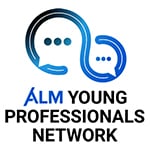 ALM's Professionals Network on LinkedIn, Advancing Future Leaders. We are excited about this pivotal group. Click here to join.
ALM's Professionals Network on LinkedIn, Advancing Future Leaders. We are excited about this pivotal group. Click here to join.
NOT FOR REPRINT
© 2025 ALM Global, LLC, All Rights Reserved. Request academic re-use from www.copyright.com. All other uses, submit a request to [email protected]. For more information visit Asset & Logo Licensing.
You Might Like
View All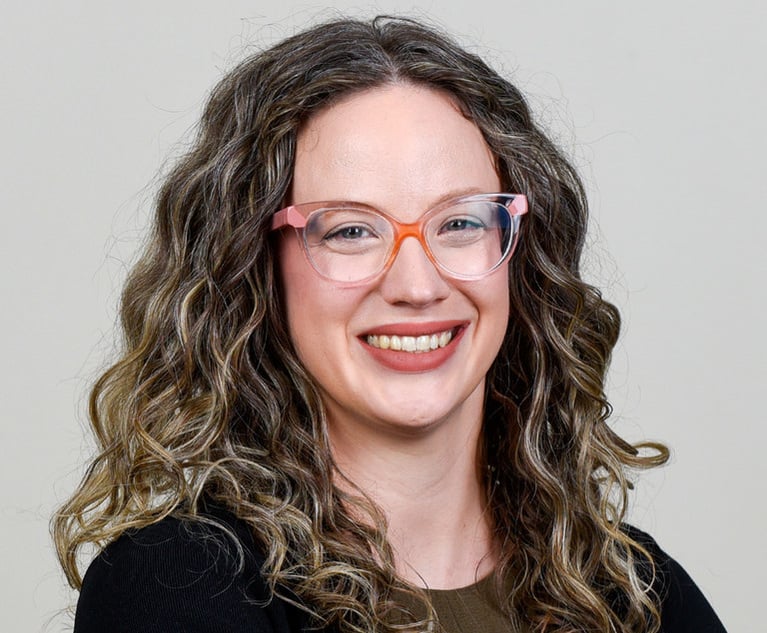
How I Made Partner: 'Take Every Opportunity to Get Involved in the Business Side of the Firm,' Says Alyssa Domzal of Ballard Spahr
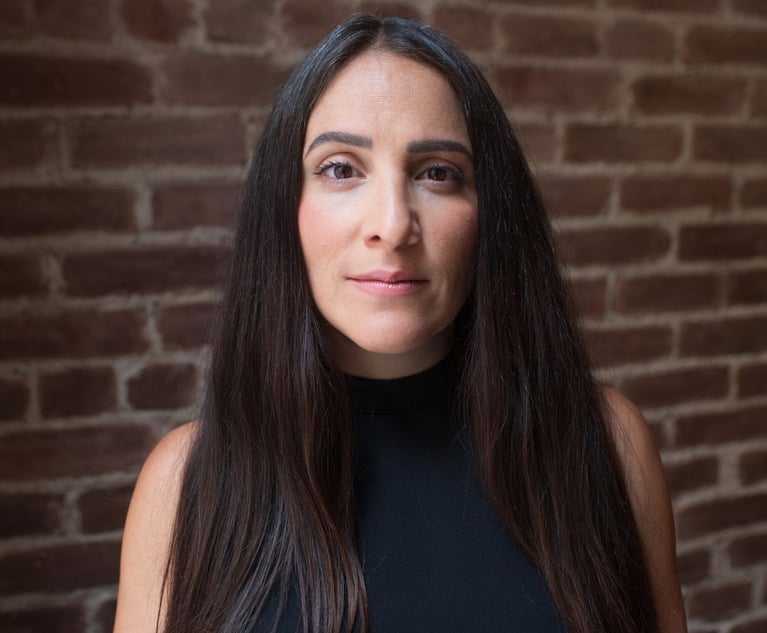
How I Made Practice Group Chair: 'Cultivating a Culture of Mutual Trust Is Essential,' Says Gina Piazza of Tarter Krinsky & Drogin
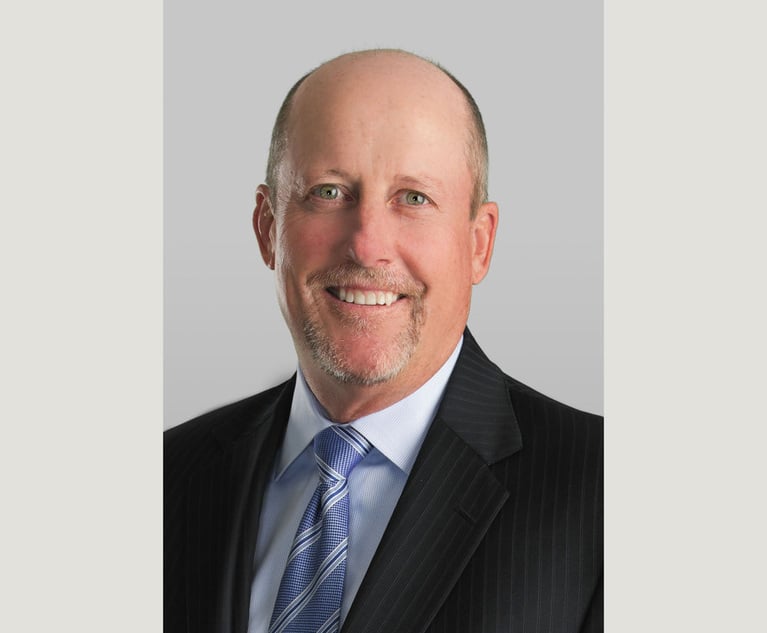
How I Made Managing Partner: 'Be the Uniting Voice of the Firm,' Says George Ogilvie of McDonald Carano
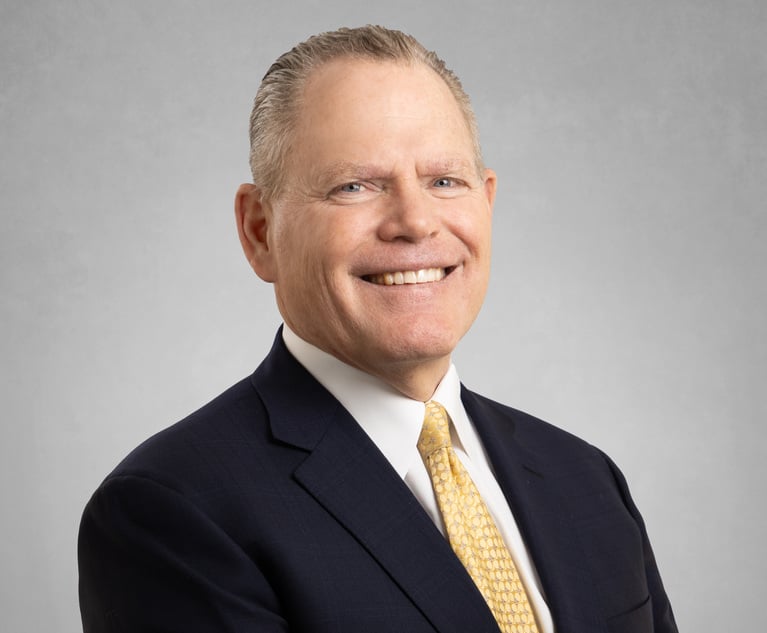
How I Made Managing Partner: 'Educate Yourself About Law Firm Economics,' Says Gregory Hessinger of Mitchell Silberberg
Trending Stories
- 1States Accuse Trump of Thwarting Court's Funding Restoration Order
- 2Microsoft Becomes Latest Tech Company to Face Claims of Stealing Marketing Commissions From Influencers
- 3Coral Gables Attorney Busted for Stalking Lawyer
- 4Trump's DOJ Delays Releasing Jan. 6 FBI Agents List Under Consent Order
- 5Securities Report Says That 2024 Settlements Passed a Total of $5.2B
Who Got The Work
J. Brugh Lower of Gibbons has entered an appearance for industrial equipment supplier Devco Corporation in a pending trademark infringement lawsuit. The suit, accusing the defendant of selling knock-off Graco products, was filed Dec. 18 in New Jersey District Court by Rivkin Radler on behalf of Graco Inc. and Graco Minnesota. The case, assigned to U.S. District Judge Zahid N. Quraishi, is 3:24-cv-11294, Graco Inc. et al v. Devco Corporation.
Who Got The Work
Rebecca Maller-Stein and Kent A. Yalowitz of Arnold & Porter Kaye Scholer have entered their appearances for Hanaco Venture Capital and its executives, Lior Prosor and David Frankel, in a pending securities lawsuit. The action, filed on Dec. 24 in New York Southern District Court by Zell, Aron & Co. on behalf of Goldeneye Advisors, accuses the defendants of negligently and fraudulently managing the plaintiff's $1 million investment. The case, assigned to U.S. District Judge Vernon S. Broderick, is 1:24-cv-09918, Goldeneye Advisors, LLC v. Hanaco Venture Capital, Ltd. et al.
Who Got The Work
Attorneys from A&O Shearman has stepped in as defense counsel for Toronto-Dominion Bank and other defendants in a pending securities class action. The suit, filed Dec. 11 in New York Southern District Court by Bleichmar Fonti & Auld, accuses the defendants of concealing the bank's 'pervasive' deficiencies in regards to its compliance with the Bank Secrecy Act and the quality of its anti-money laundering controls. The case, assigned to U.S. District Judge Arun Subramanian, is 1:24-cv-09445, Gonzalez v. The Toronto-Dominion Bank et al.
Who Got The Work
Crown Castle International, a Pennsylvania company providing shared communications infrastructure, has turned to Luke D. Wolf of Gordon Rees Scully Mansukhani to fend off a pending breach-of-contract lawsuit. The court action, filed Nov. 25 in Michigan Eastern District Court by Hooper Hathaway PC on behalf of The Town Residences LLC, accuses Crown Castle of failing to transfer approximately $30,000 in utility payments from T-Mobile in breach of a roof-top lease and assignment agreement. The case, assigned to U.S. District Judge Susan K. Declercq, is 2:24-cv-13131, The Town Residences LLC v. T-Mobile US, Inc. et al.
Who Got The Work
Wilfred P. Coronato and Daniel M. Schwartz of McCarter & English have stepped in as defense counsel to Electrolux Home Products Inc. in a pending product liability lawsuit. The court action, filed Nov. 26 in New York Eastern District Court by Poulos Lopiccolo PC and Nagel Rice LLP on behalf of David Stern, alleges that the defendant's refrigerators’ drawers and shelving repeatedly break and fall apart within months after purchase. The case, assigned to U.S. District Judge Joan M. Azrack, is 2:24-cv-08204, Stern v. Electrolux Home Products, Inc.
Featured Firms
Law Offices of Gary Martin Hays & Associates, P.C.
(470) 294-1674
Law Offices of Mark E. Salomone
(857) 444-6468
Smith & Hassler
(713) 739-1250









